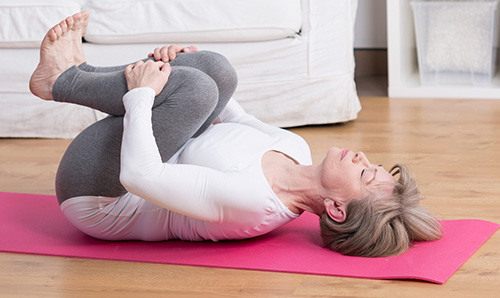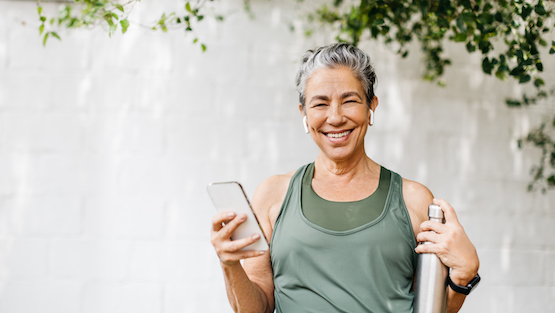By Annie, Wellness Coach
There’s one hormonal imbalance symptom that not many women wish to discuss… urinary incontinence. But so many of us experience it — up to 70% of perimenopausal and menopausal women — that I think it’s important to discuss!

If you’re suffering some loss of bladder control, you’re not alone in battling this symptom. And, there are several ways you can support your body as you go through urinary incontinence in menopause.
What causes urinary incontinence?
Urinary incontinence often occurs during pregnancy, post-partum, and menopause due to a lower level in estrogen. As you go through perimenopause and menopause, the sphincter muscles that surround the urethra may contract or become not strong enough to hold back the urine. You may also experience incontinence if you are constipated,drink too much caffeine and alcohol, have a urinary tract infection, and or are carrying excess weight.
What can help?
-
- Support those hormones with your diet. Start by trying to eliminate caffeine and alcohol. Drinks such as soda, coffee, or tea (with or without caffeine) tend to fill the bladder quickly and sometimes cause a leak. Also, be sure to include protein at every meal and snack. Protein is essential for quality hormone support.
- Exercise the pelvic floor daily. You can do Kegels lying down, while in the bathroom, or even sitting in a chair at the office or car ride home. New to Kegels? Get started here with these instructions found on womenshealth.gov:
- Squeeze the muscles in your genital area as if you were trying to stop the flow of urine or trying to stop from passing gas. Try not to squeeze the muscles in your belly or legs at the same time. Try to squeeze only the pelvic muscles. Be extra careful not to tighten your stomach, legs, or buttocks.
- Relax. Squeeze the muscles again and hold for 3 seconds. Then relax for 3 seconds. Work up to 3 sets of 10 repeats.
- As your muscles get stronger, try doing your exercises while sitting or standing. You can do these exercises any time, while sitting at your desk, in the car, waiting in line, doing the dishes, etc.
- Work on weight loss. If you are overweight, this can put extra pressure on the bladder to make urinary incontinence worse. Losing weight may help reduce this issue.
- Avoid drinking too much and especially later in the day. Typically, six 8 oz. glasses per day of water is adequate. You may want to try reducing your liquid intake after your dinner time meal. But, it is important to stay hydrated, so don’t cut out water completely!
You may also try to keep a journal to notice if you can find a correlation to your incontinence. Keep in mind that diet and stress levels have a huge impact on your hormones and ultimately your incontinence. You may want to take our Hormonal imbalance quiz to find out more about possible imbalances.
If you have been trying these suggestions and are still struggling it may be time to call your healthcare practitioner. I’m wishing you good health and happiness as you work on your personal journey towards better health.
* Information presented here is not intended to cure, diagnose, prevent or treat any health concerns or condition, nor is it to serve as a substitute professional medical care.










